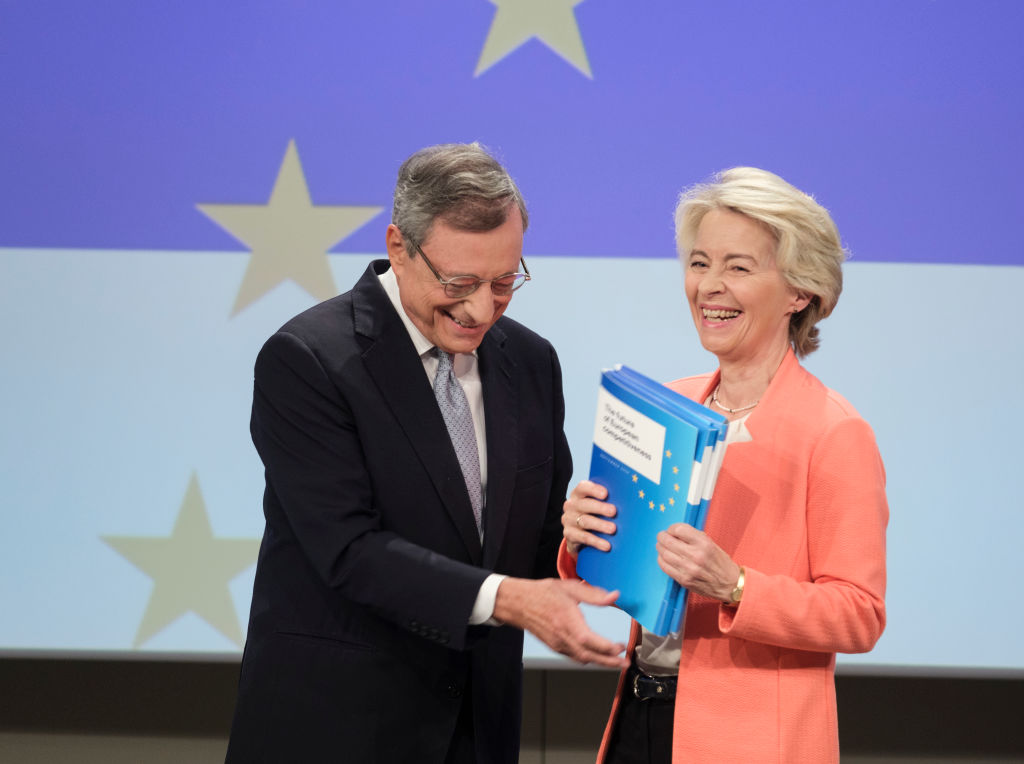After four unhappy years shackled to a coalition of misery, the Free Democratic Party (FDP) leader and Finance Minister Christian Lindner has filed for divorce. On November 1, he surprised his Green and Social Democratic partners with a series of demands, including a regulatory moratorium, tax cuts, a delay of agreed climate goals, cuts to the federal climate fund and industrial subsidies, and a dramatic reform of the retirement system.
Individually, none of these is acceptable to his coalition partners, and taken together they are nothing short of a political provocation. It is hard to see how Chancellor Scholz can ignore such a blunt challenge to his government, even with his well-known gift for torpid inertia. Whether this belated re-discovery of FDP principles is enough to rescue Lindner and his party from electoral oblivion is uncertain. At this late date, less than a year from the next scheduled election, German voters are less likely to see Lindner as a man of conviction than as a rat fleeing a sinking ship.
The Free Democrats have always been a lonely voice for limited government liberalism. Squeezed between the quasi-corporatism of Germany Inc. and the dirigiste tendencies of France, the FDP’s preferred policies have never been particularly popular at home or across Europe. Even before Lindner dropped his bombshell, polling suggested the FDP would drop below the 5 per cent threshold, and again vanish from the Bundestag, as they did from 2013 to 2017. Aging party loyalists will recall when their party held the balance of power in Bonn. Free Democrat Hans-Dietrich Genscher served as foreign minister in both SPD and CDU governments, tempering the more extreme inclinations of his senior coalition partners. What is often forgotten is the vital role the FDP played in defending the interests of Germany’s Mittelstand, the small, often family-owned businesses that employ a majority of German workers.
While the CDU championed the interests of big business and the SPD those of the big industrial unions, the Free Democrats worked to protect the Mittelstand from corporatist stitch-ups between these two powerful political blocs. Now decried as “neo-liberalism,” the core economic position of the Free Democrats during their 1980’s heyday was simply that policies befitting large multinationals and their unions are ill-suited to smaller concerns. Volkswagen could afford massive compliance bureaucracies and even use regulation as a form of protectionism; small family-owned businesses suffered from rules scaled to much larger concerns. The Free Democrats became the party of “small-c” capitalists seeking policies more favourable to their circumstances.
Perhaps Lindner has judged this a moment for the Free Democrats to shine, given the stifling overregulation condemned by Mario Draghi in his doorstopper critique of the EU’s economic prospects. Freeing business from the baroque regulations and high costs that have made Germany nearly un-investable even by its own firms might appeal to more than 5 per cent of an electorate mired in economic stagnation. Yet until last Friday, Lindner offered little beyond his defence of the Schwarze Null debt brake and a rejection of collective borrowing by the EU. Traditional FDP policies were thwarted by an unhappy coalition in which the Social Democrats blocked any reform of worker benefits, the Greens rejected any dilution of environmental commitments, and EU mandates were regarded as holy writ. Bringing down the government may not help the FDP’s fortunes, as it will be difficult in the ensuing election for Lindner to run against the policies of a government of which he was very recently a prominent member. He may be punished by German voters, who tend to prize political predictability. Snap elections are for more rambunctious polities.
And so, the party is stuck with the consequences of its unfortunate decision to enter the coalition four years ago. Had it remained outside of government, the Free Democrats would have retained the freedom to criticize the Net Zero policies that are driving German car makers to ruin, and advocate for policies that entrepreneurs and small businesses need to thrive and grow. Christian Lindner could usefully remind Germans that before they became captains of industry, Robert Bosch, Carl Benz and Werner von Siemens were ambitious young innovators able to exploit their era’s emerging technological revolution and create the basis of Germany’s current prosperity.
But even free of its coalition partners the FDP knows that economic liberalism and deregulation remain a distinctly minority taste among Germans. Employment security, good benefits and a nice pension at the end of a career spent at a single company still count for more than unleashing the animal spirits likely to spawn world class competitors in emerging sectors. Young Germans seek a good salaried job rather than a great new business plan. Which is bad news not just for Germany, but for the EU. Both are paralyzed by a quaking terror of aggressive Chinese mercantilism and the return of Trumpian protectionism. Neither China nor the US are likely to regain their previous appetite for European exports, and each are increasingly committed to protection of their domestic markets. Europe’s metal-bashing industries will not provide the growth needed to maintain broad prosperity or finance overburdened social welfare programs. What Germany and the EU lack are the policies needed to encourage young Europeans to become their generation’s Bosch, Benz and Siemens.
In the next election, the Free Democrats may well be booted from the Bundestag and lose their voice in the parliamentary debate over reviving the stagnant German economy. The absence of a party advocating for entrepreneurs and small business will cripple Germany’s search for answers. Germany thrived as an export steroid case: its 82 million people export nearly as much as America’s 330 million. But future growth will not come from selling more cars to China, it will come from new sectors ill-suited to the German economic model. Imagine if America’s tech industry were subject to the same work and benefit rules as General Motors. Would Silicon Valley have generated world-beating technology companies and a stupendous increase in national wealth? Would we even know of Google or Facebook had ambitious geeks been unable to offer fat stock options in exchange for punishing 70 hour work weeks? The industrial template provided by the auto industry thrived as long as Germany could produce and export cars far in excess of domestic and European demand. Future growth requires a new industrial template, one only the Free Democrats are philosophically suited to offer. Mourn the FDP’s coming demise; it is not just the loss of another small party in German politics, it is the loss of the best advocate for reform and renewed growth in Europe’s largest economy.





Germany and France lack a strategic brain on Ukraine, and here comes Trump